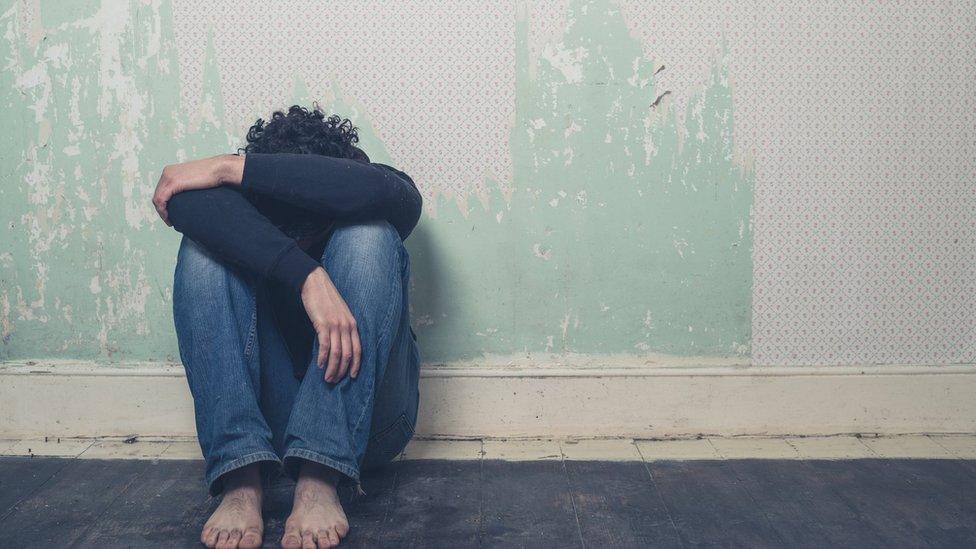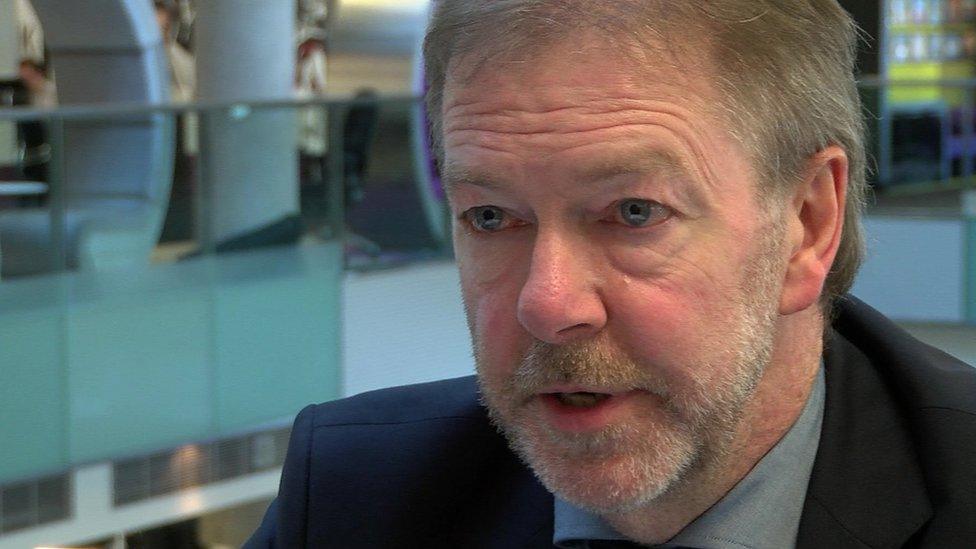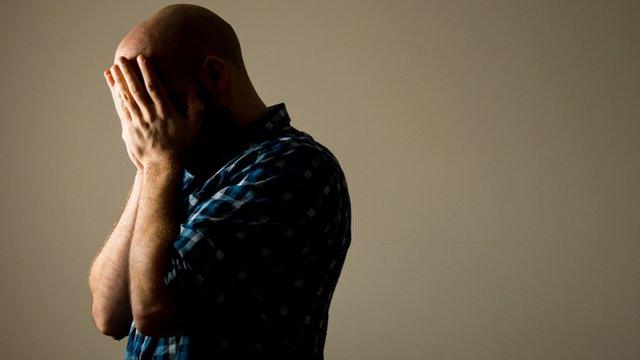Suicide risk 'higher in community'
- Published

Suicides of people being cared for in the community are higher than among hospital inpatients, a report says.
There are around 200 suicides a year of people cared for by crisis teams - three times the number in hospitals.
A third had been discharged from hospital in the previous fortnight, while a further third had been using the service for less than a week.
The University of Manchester report, external suggests crisis teams in the UK are under too much pressure.
Crisis resolution/home treatment (CRHT) teams are made up of psychiatrists, mental health nurses, social workers and support workers.
They visit patients in their homes, administering medication and offering psychological and practical support.

Analysis
By Michael Buchanan, BBC social affairs correspondent
Twenty years ago, there was a broad consensus within the NHS that suicides among psychiatric patients were inevitable.
The landscape has now changed. Medics in Detroit proved that you could cut out all suicides and now the more innovative parts of the NHS are trying to embark on a similar exercise.
But reaching that goal requires a culture change. Not just to appreciate that it is possible, but to invest in the training and other resources that will make it possible.
Too often, inpatient beds have been cut with the NHS promising the savings will be invested in community services.
Twenty years of research, with ever increasing suicides under the care of crisis teams, shows that simply hasn't happened. Too many psychiatric patients are still simply being failed.
One other important point this research highlights - those NHS trusts that involve families in investigating deaths improve performance. Why some trusts fail to do so, or engage in some tokenistic efforts, is utterly baffling.

'Too much risk'
The National Confidential Inquiry into Suicide and Homicide by People with Mental Illness (NCISH) report suggests the teams are bearing the pressure of caring for patients who actually need a more acute level of care, such as inpatient beds.

Prof Louis Appleby questioned whether there was too much reliance on crisis teams
It said crisis teams had become the "default option" in acute care "used for too many patients at high risk".
Prof Louis Appleby, director of NCISH, said: "Our findings suggest that we are accepting too much risk in the home treatment these teams offer and that the crisis team is now the priority for suicide prevention in mental health."
The report suggests people who live alone - as 43% of those who committed suicide did - were at particular risk and that the crisis team may not have been a "suitable" level of care.
Poor access to specialist help for drug and alcohol misuse was also noted by the authors.

'Under pressure'
Joy Hibbins suffered a "horrifying, shocking, terrifying and profoundly distressing" incident in 2012. Within days, she was feeling suicidal for the first time in her life, and was directed towards her local crisis team.

"I found it almost impossible to engage with them as there were so many of them," she says. "A different person was coming out to see me every day.
"When you've been through something extremely traumatic it is hard enough to build trust with one person, never mind a whole team and it meant that I was having to repeat information about the experience to different people. There was no sense of continuity of care from my perspective.
"There are some very good individuals within the crisis teams but there are many issues. They are working very much under pressure. "
In an effort to prevent others from suffering a similar experience, Joy has set up a charity in Gloucestershire, external which provides round-the-clock support to people contemplating suicide.

'Overstretched services'
Suicide rates across the UK vary. In general, rates have risen since the 2008 recession - except in Scotland where there has been a sustained fall. The rate is highest in Northern Ireland.
Samantha Nicklin, head of campaigns at Rethink Mental Illness, said: "Every suicide is preventable. We are still losing too many brothers, sisters, parents, children and friends this way.
"While progress is being made in our understanding of how to support people with mental illness and prevent suicide, we are still seeing people struggling to get the help they need before they reach crisis point, with overstretched services and patchy care across the country."
Marjorie Wallace, chief executive of the mental health charity Sane, said: "It is a flawed and unacceptable system whereby patients at risk of death by suicide are denied the hospital care that would be given to anyone with life-threatening physical illness and placed in the hands of overworked, understaffed community teams.
"We cannot stand by and watch unnecessary deaths because of a principal that everyone, however ill, should be treated in the community."
- Published29 September 2016
- Published22 September 2016

- Published25 September 2016
